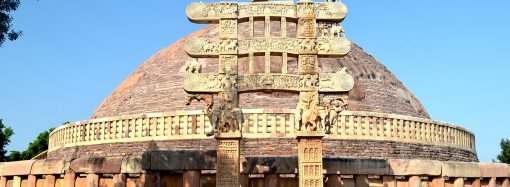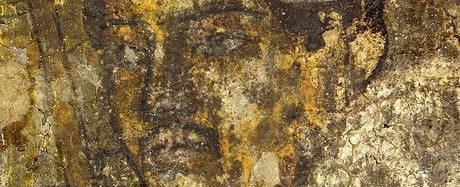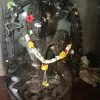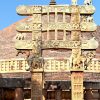Shunyata is possibly one of the most advanced concepts of Buddhism.Shunyata is often translated as Emptiness (the term I will use) in English. The first important thing that needs to be clarified is that when Gautama says, “Everything is Empty”, what is everything Empty of? What is every physical, mental, abstract concept Empty of? What is missing
Shunyata is possibly one of the most advanced concepts of Buddhism.Shunyata is often translated as Emptiness (the term I will use) in English.
The first important thing that needs to be clarified is that when Gautama says, “Everything is Empty”, what is everything Empty of? What is every physical, mental, abstract concept Empty of? What is missing that we call it Empty?
Gautama’s answer is: Everything is empty of “Inherent Identity”. It is very important to note that the Buddha has not said everything is empty of matter, energy, thoughts, feelings, etc. He has not negated these things.
So what is this Inherent Identity?
I will try to explain this through two examples. Note that the Buddhist theory which implies that everything is “Empty of Inherent Identity” is called“Dependent Origination” in English. This is also “somewhat” related to the theory of Karma or Causality the way Buddhism defines it.
Now, let’s get into the examples. Example 1 highlights Emptiness due to Composition from sub-constituents. Example 2 highlights Emptiness due to Causality or Karma.
Example 1:
I am a human being called Samik. When my acquaintances refer to the idea of me as Samik, each of them mean something. But does “Samik” have any Inherent Identity?
Let’s look at it first physically. Like any other human being, Samik has certain anatomical features – two hands, two legs, two eyes, a heart, a brain, etc.
If I cut off a hand of his, is it still Samik? Most people will say yes. What if I replace the two legs with artificial legs. Is it still Samik? Most people will say yes.
What if Samik undergoes a kidney transplant and his heart is replaced with a pacemaker. Is it still Samik? Some might say it’s the brain that really matters and it’s still Samik.
Well, parts of the brain may get damaged too and Samik may lose all memory and remember nothing about himself or anybody else. Will that be still Samik? Or, if the brain is all that matters, after death, if I preserve Samik’s brain, is that Samik?
I hope by now, I have set you thinking.
Now, let’s also quickly have a look at Samik as a mental concept. Your understanding of Samik through your experiences of Samik is actually very different from my schoolmate Koustav’s understanding of Samik who has had very different experiences with Samik. And obviously, my wife Aparajita has another completely different picture of Samik.
So, both from a physical concept and a mental concept angle, “Samik” doesn’t have an Inherent Identity. Every moment, that which we call “Samik” is something new and different, composed of atoms and energy that continue to be in constant flux and in exchange with the environment. They say we die and are born every moment. We are fresh every moment.
Example 2:
Let’s now discuss Samik from a different perspective.
Samik exists because his parents chose to procreate.
All that we call Samik, his level of intelligence, his behaviors, his actions, are a function of his genes, many many different decisions taken by Samik’s parents, different treatments meted out to him by his friends and acquaintances, serendipities, etc. “Samik” is a “Result” of all these “Causes”.
Hence, from this perspective also, “Samik” does not have an Inherent Identity. The entity that we call Samik is simply a matter of Causality, a matter of Karma.
To summarize now from these two examples, just like Samik, no concept, no entity, no thought, no feeling has Inherent Identity. They arise from, Dependently Originate from, other constituents and causes.
Now, we move on to the implications of Emptiness. What will the Buddha next point to?
The Buddha, having established the Emptiness of everything, the lack of Inherent Identity of everything, will ask: “If everything is Empty, can there be an Ego”? And he will say: “If you understand Emptiness, you should also understand that there is nothing called Ego.”
And if there is no Ego – then there is no I, no You, no Other.
Nobody to hate, nobody to get angry with, nobody that can become proud, nobody to quarrel with, nobody who can be selfish – everything has Dissolved. No negativity – and automatically Joy and Bliss. (Question might arise – Isn’t Joy Empty also? This is really getting into the no-word zone and let’s not even try to put this in words. Experience is the only thing. Words are almost useless.)
And here some people may even want to draw out the point that this is very similar to Advaita (Oneness). No I, No You, No Other. While the Buddha arrives at this through Emptiness, Advaita arrives at this through Oneness.
Concluding,
- Everything is Empty of Inherent Identity … even Nirvana …
- Hence, there is no Ego
- Hence, negative thoughts, speech and actions should vanish as soon as we realize this
- And that will lead to the end of Dukkha
****
Let’s put out some standard disclaimers for us students and practitioners of wisdom:
- Reading wisdom texts and practicing the instructions given in them is more important than discussing these things with fellow travelers on this road. Even more important is what practice leads to – our own experience of the truth about Existence and hence true understanding.Like Hermann Hesse’s Siddhartha tells the Buddha, “It (Enlightenment) has come to you in the course of your own search, on your own path, through thoughts, through meditation, through realizations. It has not come to you by means of teachings! And—thus is my thought, oh exalted one, —nobody will obtain salvation by means of teachings! You will not be able to convey and say to anybody, oh venerable one, in words and through teachings what has happened to you in the hour of enlightenment!”.
- What I write now is my current understanding. Like all things in the world, I and my understanding are subject to Shunyata and susceptible to change and flux.My understanding will change in the future and I might give a different perspective on Shunyata in the future as my understanding evolves.
- We also need to understand that the Buddha taught what is most useful to the student in front of him. He never taught the absolute truthwhich is anyways impossible to do through words. He was also mindful of the capability of the particular student in front of him and only taught what could be understood by that particular student. He would have never taught Shunyata to a human being mired in anxiety and depression or mired in greed. Shunyata is too advanced a concept for that. In Buddhism, this feature of the Buddha’s teaching is often termed as“skillful means”.
 Scared Space
Scared Space 





Leave a Comment
Your email address will not be published. Required fields are marked with *